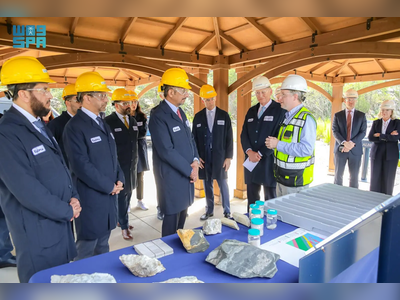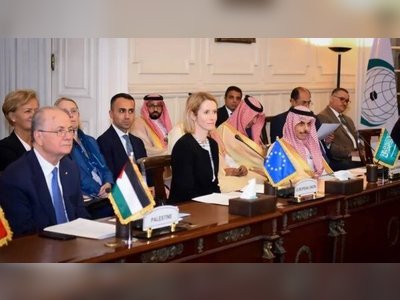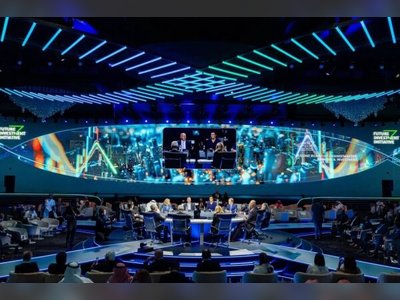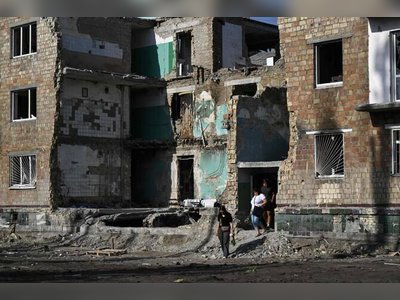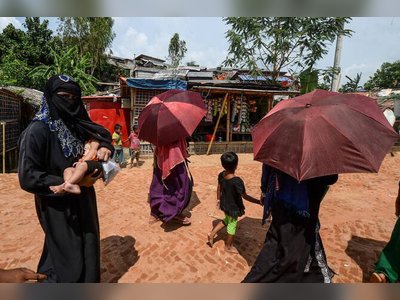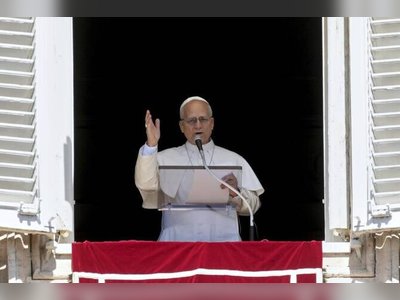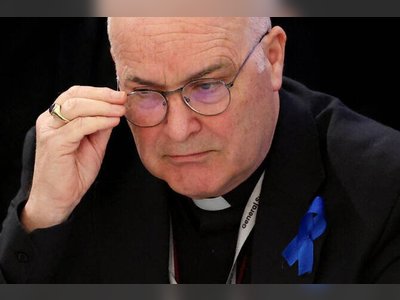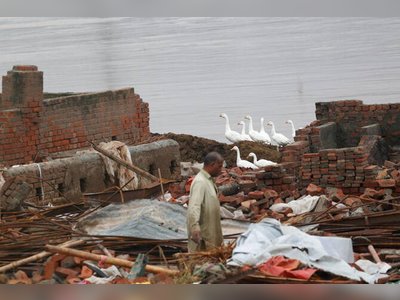0:00
0:00
New Zealand Deputy PM Commends Saudi Arabia's Role in Global Peace Efforts Amid New Russia Tariffs
New Zealand introduces sanctions on Russia while emphasizing ongoing support for a two-state solution in the Israel-Palestine conflict.
During a state visit on Monday, New Zealand’s Deputy Prime Minister, Winston Peters, acknowledged Saudi Arabia's significant contributions to global peace efforts in the context of rising global insecurity.
His remarks coincided with the announcement of New Zealand's new tariffs on Russia, targeting 52 individuals and entities linked to Russia’s military and energy sectors, as well as those providing support to North Korea.
Peters described the contemporary world as experiencing unprecedented levels of insecurity, expressing admiration for Saudi Arabia and other Gulf states' roles in fostering stability.
He stated, "This is a very dramatically changing world with greater insecurity than ever for a long, long time" and reiterated the importance of striving for improvement on a global scale.
During the discussion, Peters reaffirmed New Zealand's commitment to a two-state solution regarding the Israel-Palestine conflict, a stance that has been consistent regardless of changing governments in New Zealand.
The newly imposed sanctions on Russia come amidst ongoing tensions following the country’s annexation of Crimea in 2014 and the subsequent escalation of conflict beginning in late 2019. Peters characterized the Russian actions in Ukraine as part of an "illegal war," emphasizing the need for swift resolution and arguing against narratives portraying Russia's military maneuvers as innocent.
The deputy prime minister also reiterated the challenges facing Ukraine regarding its NATO relations and dismissed Russia's uncertainties regarding NATO as irrelevant in the current context.
Peters's visit to Saudi Arabia coincides with the Kingdom's Founding Day celebrations, which he noted as an essential aspect of his itinerary.
He praised the progress made under Saudi Arabia's Vision 2030 initiative, observing significant advancements in both economic and social realms during his visit.
The talks included discussions on a recently negotiated free trade agreement between New Zealand and the Gulf Cooperation Council (GCC), concluded on October 31 of the previous year, with both sides set to formalize the agreement in the coming months.
The Deputy Prime Minister also highlighted concerns regarding the decline in Saudi student enrollment in New Zealand universities, which he noted has decreased sharply from around 6,000 to less than 1,000 students post-COVID-19. Peters indicated a commitment to addressing this issue in future dialogues.
Furthermore, Peters paid homage to Saudi Arabia’s equestrian heritage after observing New Zealand jockey James McDonald at the Saudi Cup and commended the unique qualities of the Arabian horse.
He also referenced Kiwi boxer Joseph Parker's recent victory at the same event as a positive representation of New Zealand's presence in Saudi Arabia.
His remarks coincided with the announcement of New Zealand's new tariffs on Russia, targeting 52 individuals and entities linked to Russia’s military and energy sectors, as well as those providing support to North Korea.
Peters described the contemporary world as experiencing unprecedented levels of insecurity, expressing admiration for Saudi Arabia and other Gulf states' roles in fostering stability.
He stated, "This is a very dramatically changing world with greater insecurity than ever for a long, long time" and reiterated the importance of striving for improvement on a global scale.
During the discussion, Peters reaffirmed New Zealand's commitment to a two-state solution regarding the Israel-Palestine conflict, a stance that has been consistent regardless of changing governments in New Zealand.
The newly imposed sanctions on Russia come amidst ongoing tensions following the country’s annexation of Crimea in 2014 and the subsequent escalation of conflict beginning in late 2019. Peters characterized the Russian actions in Ukraine as part of an "illegal war," emphasizing the need for swift resolution and arguing against narratives portraying Russia's military maneuvers as innocent.
The deputy prime minister also reiterated the challenges facing Ukraine regarding its NATO relations and dismissed Russia's uncertainties regarding NATO as irrelevant in the current context.
Peters's visit to Saudi Arabia coincides with the Kingdom's Founding Day celebrations, which he noted as an essential aspect of his itinerary.
He praised the progress made under Saudi Arabia's Vision 2030 initiative, observing significant advancements in both economic and social realms during his visit.
The talks included discussions on a recently negotiated free trade agreement between New Zealand and the Gulf Cooperation Council (GCC), concluded on October 31 of the previous year, with both sides set to formalize the agreement in the coming months.
The Deputy Prime Minister also highlighted concerns regarding the decline in Saudi student enrollment in New Zealand universities, which he noted has decreased sharply from around 6,000 to less than 1,000 students post-COVID-19. Peters indicated a commitment to addressing this issue in future dialogues.
Furthermore, Peters paid homage to Saudi Arabia’s equestrian heritage after observing New Zealand jockey James McDonald at the Saudi Cup and commended the unique qualities of the Arabian horse.
He also referenced Kiwi boxer Joseph Parker's recent victory at the same event as a positive representation of New Zealand's presence in Saudi Arabia.
